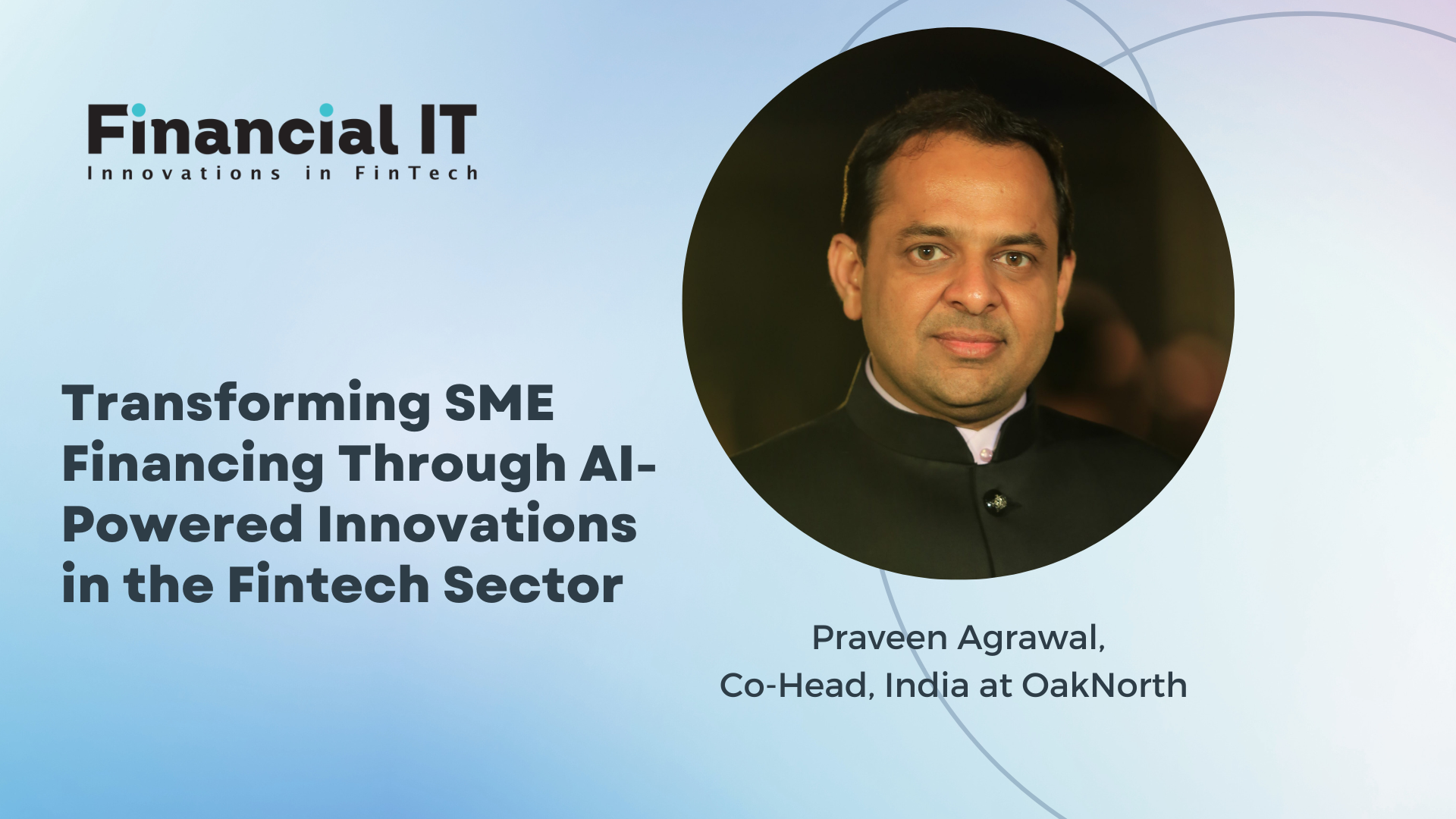Transforming SME Financing Through AI-Powered Innovations in the Fintech Sector

- Praveen Agrawal, Co-Head, India at OakNorth
- 07.12.2023 01:45 pm #ai #technology #fintech
New technologies, including AI-powered innovations, deployed by fintechs across the globe continue to transform and evolve how the sector provides financing to growing SMEs. With enterprise AI adoption, accelerated computing, and cutting-edge hardware predicted to take centre stage in 2024, it should come as no surprise that the global market for AI usage by fintechs is projected to reach a huge $61.3b by 2031. A notable figure that is driven by various factors, including the significant boost in productivity that AI innovations can bring and the continued fall-out from the pandemic that is resulting in an increased adoption of tech across the board.
Touching on some of the main ways that AI-powered innovations used across the fintech sector are transforming SME financing, the benefits they bring to overall risk assessment and credit scoring cannot be ignored. AI algorithms can analyse a vast amount of data from various sources, including traditional credit history, transactional data, social media, and more. This enables more accurate and robust credit scoring, especially for businesses with limited credit histories.
By using AI, it also enables fintechs to incorporate alternative data sources, such as social media activity, online reviews, and supplier transactions, into their lending operations. This is particularly beneficial for SMEs that may not have an extensive credit history but have a significant digital footprint. When it comes to commercial lending, banks need to assess the ability of a business to sustain a certain level of debt and repay loans.
The only way commercial banks can effectively assess commercial credit risk is by using multiple data sources – including what may be unconventional or previously unavailable data – rather than just relying on what they’ve used in the past. At OakNorth, we apply Data Science techniques to create unique models that provide a granular level of analysis on each borrower. By combining borrower-provided data with our vast repository of external data, we are able to add depth to point-in-time analysis and monitoring.
AI-innovations can also be used to automate the traditionally manual underwriting process, that can significantly reduce the time it takes to assess loan applications. As a result of this efficiency, fintech-based lenders will gain the ability to handle a larger volume of applications without compromising on the quality of risk assessment. Furthermore, AI can play a vital role in helping lenders continuously monitor the financial health of SME borrowers throughout the loan term. This proactive approach helps identify potential risks early on and allows for timely interventions.
With this in mind, in a fast moving and constantly evolving landscape, speed is crucial for SMEs that often require fast access to funds for opportunities or to address immediate challenges. AI algorithms can process large datasets rapidly, enabling lenders to make quicker decisions on loan approvals, whilst also predicting potential risks and opportunities, aiding lenders in making more informed decisions.
At OakNorth, we apply AI-innovations, as well as machine learning and data analysis techniques to create unique models that provide a granular level of analysis for each borrower. By combining borrower-provided data with our vast repository of external data, we are able to add depth to point-in-time analysis and monitoring. This tech-first mindset has been key to our success to date, however at OakNorth, we’re firm believers that successful commercial lending lies in leveraging AI-innovations to enhance humans, not replace them. This means using it to minimise time, effort and risk at the back end, so that fintechs have more opportunities to delight their customers and forge genuine relationships at the front-end. For example, every UK business we consider lending to is given the opportunity to meet our Credit Committee and discuss its borrowing needs directly with the decision-makers.
To conclude, the integration of AI in SME lending is fostering a more efficient, accurate, and inclusive financial ecosystem, benefitting both lenders and small businesses seeking financing.




















